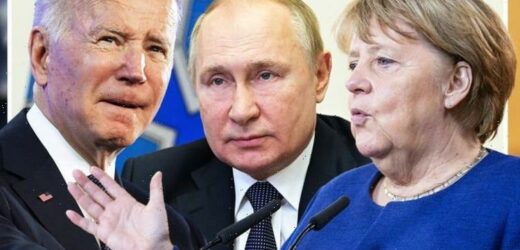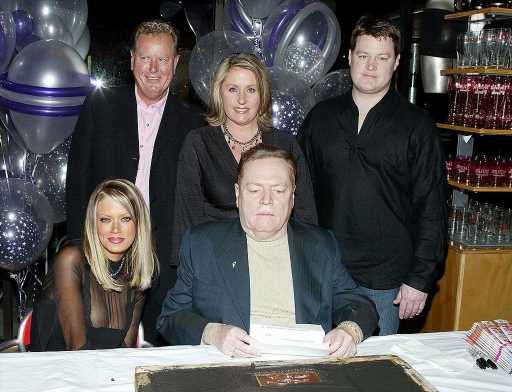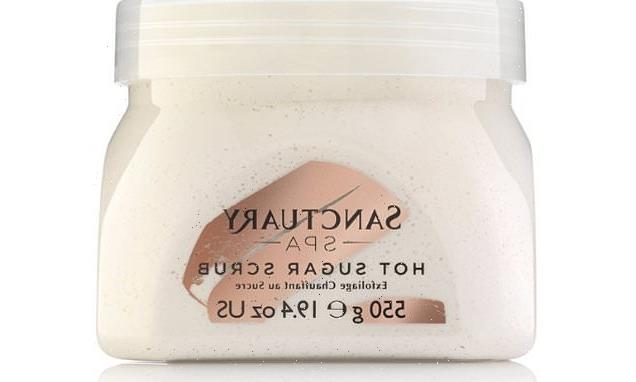Russia: The West's are playing 'exactly into' Putin's games
We use your sign-up to provide content in ways you’ve consented to and to improve our understanding of you. This may include adverts from us and 3rd parties based on our understanding. You can unsubscribe at any time. More info
The bloc already depends on Russia to supply around 40 percent of its natural gas, which travels through Moscow’s vast network of pipelines. And former German Chancellor Angela Merkel struck a deal with Vladimir Putin that will see another pipeline, Nord Stream 2 transit gas to Germany. It will bypass Ukraine and Poland on its route through the Baltic Sea. But the controversial pipeline has been dragged into discussions on how to cope with a Russian invasion of Ukraine.
Reports of 100,000 troops piling up the Ukraine-Russia border have sparked fears of an imminent Russian invasion.
Now, the UK and US are reportedly considering sending citizens from their embassies in Kiev back home.
But to stop an invasion, slapping down sanctions on Russia’s much-wanted Nord Stream 2 has been suggested.
And also being discussed is the move to cancel the pipeline altogether if Russia invades, as called for by the US.
But Germany and the rest of Europe might need that pipeline up-and-running to increase its gas supply, and might not want to anger the country it depends on for its energy.


This reliance has not been helped by Berlin’s two-decade-year-old decision to phase out nuclear power, which has seen its reliance on gas only go up.
This year, the country’s last three nuclear power plants will be closed.
And with Europe’s energy in Mr Putin’s hands, European gas prices have soared to record highs in recent months.
Since slashing gas volumes to the bloc, October prices skyrocketed to highs never seen before.
Then last month, even that record was surpassed when Mr Putin diverted gas flowing through the Yamal-Europe pipeline to the East.

This diversion has continued for over 30 days and the Kremlin appears to show no signs of switching flow back to the West.
As Germany and the rest of the bloc suffers, US President Joe Biden now appears to be stepping in.
In the event that Russia further “weaponizes” gas by slashing supplies amid the Ukraine conflict, the Biden administration is calling for an increased production of liquefied natural gas (LNG) around the world.
This would mean that Europe could fall back on increased supplies coming from companies in the Middle East, North Africa and Asia if Russian gas shortages get worse.
Amos Hochstein, Senior Adviser for Energy Security, has reportedly been drafting up a global strategy for contingency options to boost supplies.
DON’T MISS
Archaeologists baffled by skeleton that had been ‘rolled into a ditch’ [REPORT]
Tourist spots under threat as mega iceberg leaks 152 tonnes of water [REVEAL]
Truss close to Brexit deal as UK to pump funds into EU project [INSIGHT]

Mr Hochstein’s discussions are said to be in a “fairly advanced” stage, according to a senior US official.
A senior administration official said earlier this month: “We are well aware of the potential impact of a reduction of Russian energy supply, both in Europe’s market and globally, and we are working very hard to identify and manage those risks with a range of contingency options.”
And as the US is now considering sending thousands of troops to Eastern Europe, it is perhaps no surprise they are trying to reassure European allies their energy supply will be safe.
A war between Russia and Ukraine would likely significantly roil global energy markets.

Russia is the second-biggest oil producer in the world, behind the US.
And it could threaten more shortages of gas too.
The senior US official said: “A war would have a major impact on oil prices and make inflation worse.”
Another senior official told CNN: “Whatever we decide, in concert with our allies and partners, is the right course for our collective interests and security, we are prepared to deliver severe costs to the Russian economy while minimizing unwanted spillover.”
Source: Read Full Article


